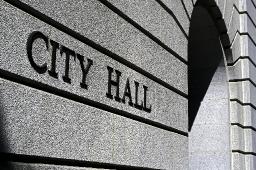
State or Province:
Queenslandcountry:
AUwhat are your gifts and talents?:
why do you want to join abcd in action?:
Working with your Council...Some tips from a Former Insider

Introduction
Local Councils can be confusing. They can cover a broad range of work in the community from roads, waste, water, parks, halls, facilities, amenities, parking, development assessments, strategic planning, community services and/or development, disaster response. The list is endless and varies from council to council. They are really cover as many, if not more, functions of state or federal government but are smaller and more compact. Each section/group of a council, although working under the one roof, will appear quite separate or “siloed” from one another. There will be a mile of red tape to work through. Added to this are the complexities of local politicians (councillors) working in close proximity, but separate, from the staff of Council. No other level of government has a situation like this which creates an additional problem of ensuring the political wing of the organisation does not unnecessarily interfere with the administrative functions of the organisation or place undue pressure on staff. This creates even more red tape. No wonder things seem to take so long to get done.
At times I’ve described the complexity and “siloed” approach of local government like the “Flying High” (Airplane) experience. This refers to a comedy film where a plane needs to be guided back to the airport by a passenger. The air traffic controller is heavily stressed and medicated “I took a bad day to give up pills”. When he is approached by someone suggesting to put the lights on the runway his response was “That would only make it too easy for them”. It can seem a little like this.
It is complex enough for those working in a council let alone those who approach council for assistance. I’ve often told new workers that it will take at least a year for them to be able to easily navigate the organisation.
I have 16 years’ experience in local government in NSW and Queensland. Following are some tips to help you find your experience of approaching your local council a little easier. I trust this is helpful.
Do your research
By this I mean be prepared before approaching your council. Be prepared to discuss your issues, suggestions or requests. Be informed but above all try and make sure you are approaching your council with something that is in their jurisdiction. Federal, State and Local government have different responsibilities. For example, In Australia schools, are not the responsibility of local government. They are a state government responsibility. Direct your enquiry to the more appropriate level of government.
Find the right person to talk to
Most council staff will try and be helpful and will, if needs be, redirect you to the correct section or person to talk to. Remember, the organisation may be complex with a high number of functions. Different sections and staff will be responsible for different work. Make it easier and save yourself time by narrowing down who your request is for. Someone from community services won’t be able to help with your question about rent or with development concerns but will be able to direct you to the best person to talk to.
It’s about relationships and connections
Working with your council is no different from working with your own community, others in your workplace or street. It is about making connections and building relationships. It is about building social capital with council. Once you’ve found a person in the right area to help you build the connection – just as you would build any social connection. This takes time but is worth the work. Building connections with people who are willing to work with you, to assist you can make it easier for you and for them. Building these relationships may also mean that some unnecessary barriers are removed or that the staff member will “walk you through” some of the more difficult areas of red tape or policy restrictions.
If the matter you are discussing requires more expertise or a decision from a higher-ranking officer the staff member you’ve built a connection with will probably refer you to another officer who has greater discretionary powers and be in a position to make a decision on complex matters. This gives you an opportunity to connect and build a relationship with another person. Take that opportunity.
Don’t forget the elected representatives – Councillors. They are there to work with you. Get to know them. Keep them in the loop of what you are trying to achieve. They are great contacts and often open to new and different ideas.
Pick Your Battles
Be strategic in what you are wanting to achieve. I’ve seen so many reasonable requests go “belly up” due to discussions getting out of hand and held up on small matters. Use your negotiation skills to keep discussions on track. Try not to get unnecessarily aggressive in your conversations. This is the best way for barriers to be placed in your path and is even more important when dealing with issues that are subject to a number of different policy areas or the result of legislative conditions.
After you have had a discussion with a staff member follow it up with an email summarising the discussion and what was decided. This is important in two ways: it is a polite way of doing business and it creates a documentary trail. Council staff need to often formally record actions and an email is an easy way for both you and the staff member to retain a record of what was discussed.
Use other democratic processes
By this I mean letters to council, letters to the Mayor or councillors, attend council meetings where issues relating to your matter will be discussed, create petitions, write to the local media. These are all good tools and when used strategically can help get the result you are aiming for.
This blog originally appeared at www.herdingtogether.com
